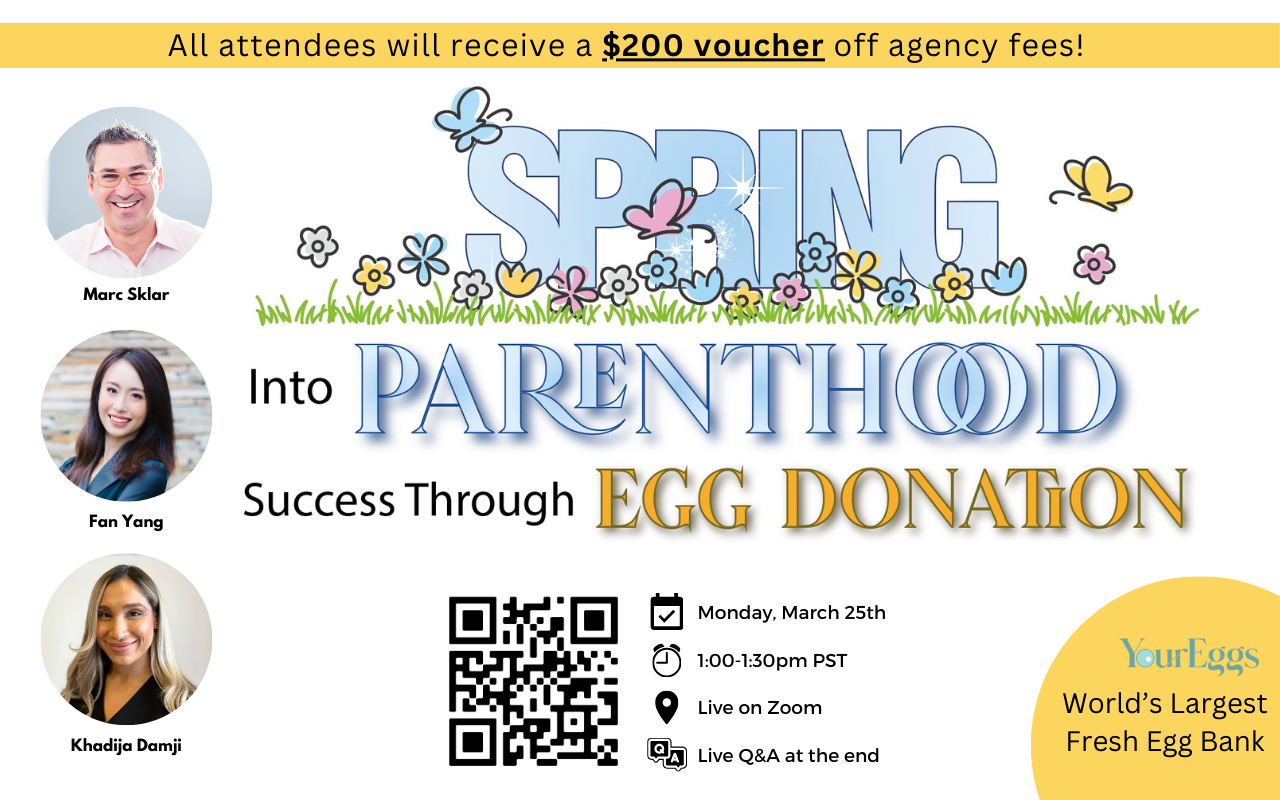In this blog, we delve into the intricacies of third-party reproduction, specifically focusing on egg donation. This topic often raises a plethora of questions, particularly from a legal standpoint. To shed light on these complexities, we had two esteemed attorneys, Echo Yang and Robert Rettenmaier from Rettenmaier Law join us. They are a veteran and family-owned law firm based in Southern California and their mission is to assist couples and individuals with all legal aspects of their journey and fulfill their dream of parenthood. Their expertise will help unravel the legal considerations essential for anyone considering using an egg donor.
Meet Echo and Robert
Before we dive into the legal intricacies, let’s get to know our guests. Echo Yang and Robert Rettenmaier are both seasoned attorneys specializing in third-party reproductive law. Echo has been practicing in this field for the past eight years, while Robert, the owner and president of his law firm, has also been assisting intended parents and egg donors for the same duration. Interestingly, their professional partnership is also a personal one—they are married and met during law school.
How Did You Start Working Together?
Robert shared that they first ventured into this niche area of law through a family friend who needed legal assistance for a third-party reproductive case. They found the work so rewarding that they decided to build a law firm dedicated entirely to surrogacy and egg donor cases. Echo, initially practicing financial law, joined Robert after they both realized their passion for this field.
Why Do Couples Need an Attorney for Egg Donor Processes?
One of the first questions we asked was about the necessity of having an attorney when using an egg donor. Robert explained that California law mandates that both the intended parents and the egg donor have legal representation. This requirement ensures that all parties clearly understand their responsibilities, the ownership and future use of the eggs, and the legal use of the embryo. While some might think it’s just about signing paperwork, the legal nuances are crucial for protecting everyone involved.
Legal Process Duration
When our team expressed amazement at the efficiency of the legal process, Robert explained that typically, their firm aims to draft and finalize the contract within a week. However, the timeline can vary depending on the engagement levels of both the donor and the intended parents. If both parties are proactive, the process is swift; otherwise, it might take longer.
Common Questions from Intended Parents
Echo and Robert highlighted two of the most frequently asked questions from intended parents. The foremost concern is whether the egg donor can claim parental rights over the child. Robert assured that under California law, once the contracts are properly drafted and signed, the egg donor cannot claim such rights. Another common question is about the possibility of future contact between the child and the donor. This aspect needs to be discussed and agreed upon during the contract phase, whether it results in an open, semi-open, or closed arrangement.
Potential Issues and How to Avoid Them
One of the biggest issues Robert recounted involved a case where the egg donor contract wasn’t properly set up, leading to complications in naturalizing the child in the intended parents’ home country. This underscores the importance of having a knowledgeable attorney who ensures that all legal requirements are meticulously met, not just in the U.S., but also considering international laws if the parents are from abroad.
Importance of Jurisdiction
The jurisdiction where the legal work is done plays a significant role. Echo elaborated that California’s jurisdiction over a case could be established through various conditions, such as the location of the IVF clinic, where the contract is signed, or where the parties reside. Understanding these nuances is crucial for ensuring the contract is legally binding and enforceable.
International Considerations
For international intended parents, the legal requirements can become even more complex. It’s essential to have a local attorney in the intended parents’ home country to ensure compliance with their local laws and to facilitate the child’s naturalization. Robert emphasized that international cases might require coordination between a U.S. attorney and a local attorney to ensure all legal aspects are covered comprehensively.
The journey to parenthood through egg donation is laden with legal intricacies, but having the right legal support can make a significant difference. Echo and Robert’s expertise underscores the importance of working with knowledgeable attorneys, reputable agencies, and reliable clinics to navigate this complex process smoothly. Their insights highlight that while the legal process might seem daunting, it is a crucial step in ensuring the rights and responsibilities of all parties are clearly defined and protected.
For anyone considering using an egg donor, it’s vital to engage with professionals who can provide the necessary legal guidance and support to make the journey as smooth and secure as possible. If you have any questions or need further information, don’t hesitate to contact Echo and Robert.
We have the full interview on our YouTube channel, where you can leave any questions or comments you may have! Thank you for tuning in, and we hope you found this discussion as informative and engaging as we did.



